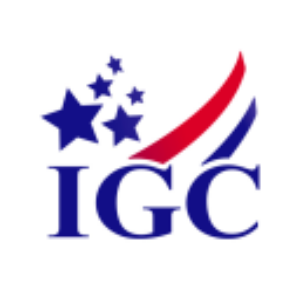Update On IGC’s Phase 1 Clinical Trial on Alzheimer’s Patients
India Globalization Capital, Inc. (“IGC” or the “Company”) (NYSE American: IGC) is pleased to announce the progress of its tetrahydrocannabinol (THC)-based phase 1 clinical trial, which was approved to proceed by the U.S. Food and Drug Administration (“FDA”) on July 30, 2020, as previously disclosed.
On February 11, 2021, the Company completed administering the first of three levels of dosing of IGC-AD1, the Company’s cannabinoid-based investigational new drug, on the first five of twelve patients suffering from Alzheimer’s disease. The Company continues to enroll the remaining patients.
Enrolling patients and commencing the trial involves obtaining Informed Consent, conducting neurological exams, and conducting initial blood tests, among others, to identify inclusion and exclusion criteria to ensure that patients meet the enrollment requirements.
Once enrolled, patients undergo additional blood draws to assess variations of the gene CYP2C9. Follow-up blood draws continue thereafter at specific time intervals to assess the amount of formulation in the patient’s system and the amount of time it takes patients to metabolize the active ingredients (pharmacokinetics) in IGC-AD1.
Through this data, we hope to map variations of CYP2C9 to the metabolization of the active ingredients in IGC-AD1, including THC (pharmacogenetics). For example, we hope to learn how fast, or how slow, an elderly patient with Alzheimer’s and a specific variation of CYP2C9 metabolizes THC, the psychoactive component of cannabis. This is an important insight into drug interaction, as the gene CYP2C9 makes an enzyme that metabolizes THC as well as about 100 medications, including a broad spectrum of medicines prescribed for pain, cholesterol, and seizures, among others.
“While it has taken a long time to get to this trial, with many hurdles crossed along the way, including restrictions due to the Covid-19 pandemic, we are excited to have begun administering IGC-AD1, which uses a plant-derived cannabinoid, in an active trial. While others have focused on CBD (cannabidiol), the non-psychoactive component of cannabis, our trial is focused on THC, the psychoactive component. There is no known cure for Alzheimer’s disease, but we believe that THC, in combination with other drugs, may help with the management of Alzheimer’s patients, improve patient lifestyle, and bring a certain degree of relief for their caregivers,” said Ram Mukunda, CEO of IGC.
A Phase 1 trial is the first human trial in a multi-step process designed to obtain regulatory approval for the marketing of a new pharmaceutical drug. This multi-step process for obtaining FDA-approval is described in detail in the Company’s annual report on Form 10-K for the Fiscal Year 2019, filed with the U.S. Securities and Exchange Commission (“SEC”) on June 14, 2019. Our Phase 1 study is a placebo-controlled study. IGC-AD1 will be administered for three 14-day periods, called cohorts, with the dose-escalated as low, medium, and high for each cohort. The participants are monitored daily, and data is collected to determine safety based on solicited and unsolicited adverse events. We are also monitoring changes in certain behavioral aspects of patients to better inform on designs for the anticipated next phase of trials that will test efficacy on specific symptoms. The Phase 1 trial is conducted and managed by IGC’s subsidiary, IGC Pharma LLC.
The trial is listed on https://www.clinicaltrials.gov/ct2/show/NCT04749563?term=IGC+Pharma&draw=2&rank=1
About IGC:
IGC operates two lines of business: (i) infrastructure and (ii) life sciences. The Company is based in Potomac, Maryland, U.S.A. social media: www.igcinc.us, www.igcpharma.com, Twitter @IGCIR.
Forward-Looking Statements:
This press release contains forward-looking statements within the meaning of Section 21E of the Securities Exchange Act of 1934. These forward-looking statements are based largely on IGC’s expectations and are subject to several risks and uncertainties, certain of which are beyond IGC’s control. Actual results could differ materially from these forward-looking statements as a result of, among other factors, the Company’s failure or inability to commercialize one or more of the Company’s products or technologies, including the investigational new drug or formulation described in this release or failure to obtain FDA approval for the investigational new drug; testing results from human trials that may not be favorable or as anticipated; general economic conditions that are less favorable than expected, including as a result of the ongoing COVID-19 pandemic; the FDA’s general position regarding cannabis- and hemp-based products; and other factors, many of which are discussed in IGC’s SEC filings. IGC incorporates by reference the human trial disclosures and Risk Factors identified in its Annual Reports on Form 10-K filed with the SEC on July 13, 2020, and June 14, 2019; and Quarterly Reports on Form 10-Q filed with the SEC on August 19, 2020, November 20, 2020, and February 12, 2021, as if fully incorporated and restated herein. In light of these risks and uncertainties, there can be no assurance that the forward-looking information contained in this release will occur.
View source version on businesswire.com: https://www.businesswire.com/news/home/20210222005481/en/







